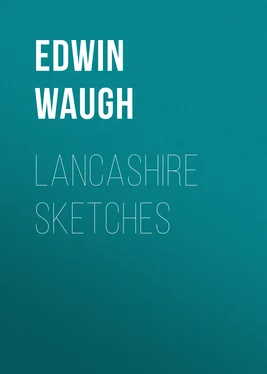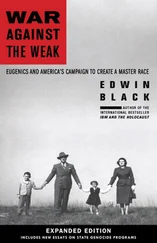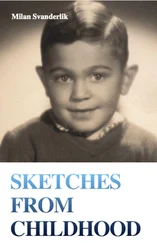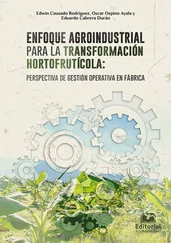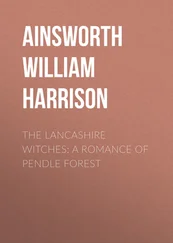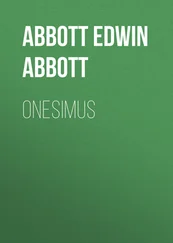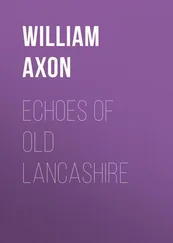Edwin Waugh - Lancashire Sketches
Здесь есть возможность читать онлайн «Edwin Waugh - Lancashire Sketches» — ознакомительный отрывок электронной книги совершенно бесплатно, а после прочтения отрывка купить полную версию. В некоторых случаях можно слушать аудио, скачать через торрент в формате fb2 и присутствует краткое содержание. Жанр: Путешествия и география, foreign_antique, foreign_prose, на английском языке. Описание произведения, (предисловие) а так же отзывы посетителей доступны на портале библиотеки ЛибКат.
- Название:Lancashire Sketches
- Автор:
- Жанр:
- Год:неизвестен
- ISBN:нет данных
- Рейтинг книги:4 / 5. Голосов: 1
-
Избранное:Добавить в избранное
- Отзывы:
-
Ваша оценка:
- 80
- 1
- 2
- 3
- 4
- 5
Lancashire Sketches: краткое содержание, описание и аннотация
Предлагаем к чтению аннотацию, описание, краткое содержание или предисловие (зависит от того, что написал сам автор книги «Lancashire Sketches»). Если вы не нашли необходимую информацию о книге — напишите в комментариях, мы постараемся отыскать её.
Lancashire Sketches — читать онлайн ознакомительный отрывок
Ниже представлен текст книги, разбитый по страницам. Система сохранения места последней прочитанной страницы, позволяет с удобством читать онлайн бесплатно книгу «Lancashire Sketches», без необходимости каждый раз заново искать на чём Вы остановились. Поставьте закладку, и сможете в любой момент перейти на страницу, на которой закончили чтение.
Интервал:
Закладка:
Edwin Waugh
Lancashire Sketches / Third Edition
PREFACE TO THE FIRST EDITION
In this volume, relating to a district with which the writer is intimately acquainted, he has gathered up a few points of local interest, and, in connection with these, he has endeavoured to embody something of the traits of present life in South Lancashire with descriptions of its scenery, and with such gleanings from its local history as bore upon the subject, and, under the circumstances, were available to him. How far he has succeeded in writing a book which may be instructive or interesting, he is willing to leave to the judgment of those who know the country and the people it deals with. He is conscious that, in comparison with the fertile peculiarities which Lancashire presents to writers who are able to gather them up, and to use them well, this volume is fragmentary and discursive; yet he believes that, so far as it goes, it will not be wholly unacceptable to native readers.
The historical information, interspersed throughout the volume, has been gleaned from so many sources that it would be a matter of considerable difficulty to give a complete and detailed acknowledgment of it. In every important case, however, this acknowledgment has been given, with some degree of care, as fully and clearly as possible, in the course of the work. Some of this historical matter may prove to be ill-chosen, if not ill-used—perhaps in some cases it might have been obtained in a better form, and even more correctly given—but the writer has, at least, the satisfaction of knowing that, with such light as he had, and with such elements as were convenient to him, he has been guided, in his selection of that kind of information, by a desire to obtain the most correct and the most applicable matter which was available to him.
A book which is purely local in its character and bearing, as this is, cannot be expected to have much interest for persons unconnected with the district which it relates to. If there is any hope of its being read at all, that hope is centred there. The subjects it treats upon being local, and the language used in it being often the vernacular of a particular part of the county, these circumstances combine to narrow its circle of acquaintance. But, in order to make that part of it which is given in the dialect as intelligible as possible to all readers not intimate with that form of native language, some care has been taken to explain such words as are unusually ambiguous in form, or in meaning. And here it may be noticed, that persons who know little or nothing of the dialect of Lancashire, are apt to think of it as one in form and sound throughout the county, and expect it to assume one unvaried feature whenever it is represented in writing. This is a mistake, for there often exist considerable shades of difference—even in places not more than eight or ten miles apart—in the expression, and in the form of words which mean the same thing; and, sometimes, the language of a very limited locality, though bearing the same general characteristics as the dialect of the county in general, is rendered still more perceptibly distinctive in features, by idioms and proverbs peculiar to that particular spot. In this volume, however, the writer has taken care to give the dialect, as well as he could, in such a form as would convey to the mind of the general reader a correct idea of the mode of pronunciation, and the signification of the idioms, used in the immediate locality which he happens to be writing about.
Lancashire has had some learned writers who have written upon themes generally and locally interesting. But the successful delineation of the quaint and racy features of its humble life has fallen to the lot of very few. John Collier, our sound-hearted and clear-headed native humourist of the last century, left behind him some exquisite glimpses of the manner of life in his own nook of Lancashire, at that time. The little which he wrote, although so eccentric and peculiar in character as to be almost unintelligible to the general reader, contains such evidence of genius, and so many rare touches of nature, that to those who can discern the riches hidden under its quaint vernacular garb, it wears a perennial charm, in some degree akin to that which characterises the writings of such men as Cervantes and De Foe. And, in our own day, Samuel Bamford—emphatically a native man—has, with felicitous truth, transferred to his pages some living pictures of Lancashire life, which will probably be read with more interest even than now, long after the writer has been gathered to his fathers. There are others who have illustrated some of the conditions of social existence in Lancashire, in a graphic manner, with more polish and more learning; but, for native force and truth, John Collier and Samuel Bamford are, probably, the foremost of all genuine expositors of the characteristics of the Lancashire people.
In conclusion, all that has hitherto been done in this way is small in amount, compared with that which is left undone. The past, and still more the disappearing present, of this important district teem with significant features, which, if caught up and truthfully represented, might, perhaps, be useful to the next generation.
E. W.Manchester.
PREFACE TO THE THIRD EDITION
Since the second issue of this volume, the matter it contained has been revised and corrected; and considerable additions have been made thereto. But, even yet, the writer is sensible of many crudities remaining in this, his first venture upon the world of letters. And amongst the new matter which has been added to the present edition, the reader will find, at least, one article—"Saint Catherine's Chapel"—which has no direct connection with a volume of "Lancashire Sketches." He must now, however, leave the book to such fate as awaits it; hoping that, if time and health be granted to him, he may yet do something worthier of the recognition which his efforts have already met with from the people of his native county.
E. W.Manchester.
Chapel Island; OR, An Adventure on Ulverstone Sands
The wills above be done! but I would fain die a dry death.
I have spent many a pleasant day at the village of Bardsea, three miles south of Ulverstone. It stands close to Conishead Park, high upon a fertile elbow of land, the base of which is washed on two sides by the waters of Morecambe Bay. It is an old hamlet, of about fifty houses, nearly all in one wandering street, which begins at the bottom of a knoll, on the Ulverstone side, and then climbs to a point near the summit, where three roads meet, and where the houses on one side stand back a few yards, leaving an open ground like a little market-place. Upon the top of the knoll, a few yards east of this open space, the church stands, overlooking sea and land all round. From the centre of the village the street winds on towards the beach. At this end a row of neat houses stands at a right angle, upon an eastward incline, facing the sea. The tide washes up within fifty yards of these houses at high water. At the centre of the village, too, half a dozen pleasant cottages leave the street, and stand out, like the fin of a fish, in a quiet lane, which leads down into a little shady glen at the foot of Birkrigg. The same lane leads, by another route, over the top of that wild hill, into the beautiful vale of Urswick. Bardsea is a pretty, out of the way place, and the country about it is very picturesque and varied. It is close to the sea, and commands a fine view of the bay, and of its opposite shores, for nearly forty miles. About a mile west of the village, Birkrigg rises high above green pastures and leafy dells that lap his feet in beauty. Northward, the road to Ulverstone leads through the finest part of Conishead Park, which begins near the end of the village. This park is one of the most charming pieces of undulant woodland scenery I ever beheld. An old writer calls it "the Paradise of Furness." On the way to Ulverstone, from Bardsea, the Leven estuary shows itself in many a beautiful gleam through the trees of the park; and the fells of Cartmel are in full view beyond. It is one of the pleasantest, one of the quietest walks in the kingdom.
Читать дальшеИнтервал:
Закладка:
Похожие книги на «Lancashire Sketches»
Представляем Вашему вниманию похожие книги на «Lancashire Sketches» списком для выбора. Мы отобрали схожую по названию и смыслу литературу в надежде предоставить читателям больше вариантов отыскать новые, интересные, ещё непрочитанные произведения.
Обсуждение, отзывы о книге «Lancashire Sketches» и просто собственные мнения читателей. Оставьте ваши комментарии, напишите, что Вы думаете о произведении, его смысле или главных героях. Укажите что конкретно понравилось, а что нет, и почему Вы так считаете.
